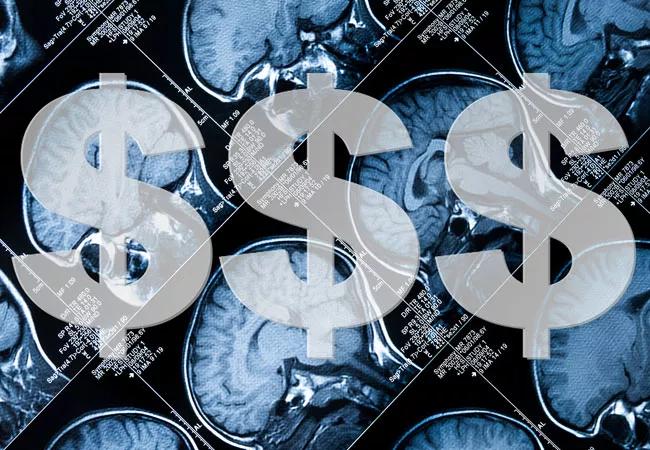First U.S. cost-effectiveness analysis in decades supports more surgical evaluations

From the perspective of cost-effectiveness, U.S. patients with drug-resistant temporal lobe epilepsy (DR-TLE) should be referred for evaluation for epilepsy surgery “without hesitation,” concludes a new model-based analysis from Cleveland Clinic researchers.
Advertisement
Cleveland Clinic is a non-profit academic medical center. Advertising on our site helps support our mission. We do not endorse non-Cleveland Clinic products or services. Policy
The study, published ahead of print by Neurology on July 8, revealed two main findings:
“The clinical effectiveness of epilepsy surgery for well-selected patients with pharmacoresistant temporal lobe epilepsy has been well established, but surgery remains an underutilized treatment option, in part because it is viewed as costly,” says the study’s senior investigator, Lara Jehi, MD, MHCDS, Research Director in Cleveland Clinic’s Epilepsy Center and Chief Research Information Officer for Cleveland Clinic health system. “But we have demonstrated that, compared with continued medical management, epilepsy surgery is actually cost-saving in the long run for patients already determined to be good surgical candidates. We also found that, at a population level, even when a patient with DR-TLE is not known to qualify for epilepsy surgery, referral for a surgical evaluation to assess the patient’s surgical candidacy remains the most cost-effective management option.”
The study was performed using a Markov decision-analytic model. The primary analysis assessed whether surgery was cost-effective relative to continued medical management in adults with DR-TLE deemed to be surgical candidates. A secondary analysis assessed the cost-effectiveness of evaluation for epilepsy surgery among adults diagnosed with DR-TLE. Each analysis was done using a lifetime horizon.
Advertisement
Both healthcare and societal perspectives were used, with the former including direct healthcare costs (such as cost of surgery and anti-epileptic drugs) and the latter including direct costs plus indirect costs (such as lost earnings). Cost-effectiveness was evaluated by determining whether the strategy of interest (surgery or surgical evaluation) was more effective and less costly than the alternative or, if it was more effective but more costly, by using the incremental cost-effectiveness ratio (ICER) to determine effectiveness in terms of societal willingness to pay, expressed in dollars per additional quality-adjusted life-year (QALY) gained. In the U.S., healthcare interventions that cost $50,000 to $150,000/QALY are generally considered reasonable and cost-effective.
The analyses were based on data from Cleveland Clinic and from a meta-analysis of published literature involving adult patients with DR-TLE, with drug resistance defined as continued seizures despite adequate trials of at least two appropriately chosen anti-epileptic drugs. “Parameter estimates were derived from pooled estimates from multiple component studies,” the researchers note. Costs were adjusted to 2019 U.S. dollar equivalents.
The analyses revealed the following:
Advertisement
While conceding that their study carries the limitations of any cost-effectiveness analysis using pooled data and multiple assumptions, the researchers note that it is a much-needed assessment of a pressing research question. The study is the first cost-effectiveness analysis of epilepsy surgery in the U.S. in more than two decades, and the applicability of analyses from other nations is highly limited by dramatic differences in these nations’ healthcare cost structures.
“In contrast to traditional reluctance to refer patients for surgical evaluation due to concern over up-front costs, our findings suggest that a referral-based strategy is actually the cost-effective approach for patients with drug-resistant temporal lobe epilepsy,” says Dr. Jehi. “The cost of surgical evaluation is absolutely reasonable, even in patients with a low likelihood of being deemed a surgical candidate. In patients who have a high chance of surgical eligibility, evaluation is likely to be cost-saving.”
A key next step for research in this area is development of cost-effectiveness prediction models that can be customized to individual patient profiles, Dr. Jehi adds. “In the meantime, our findings strengthen the growing case for more widespread consideration of surgery for patients with medically refractory temporal lobe epilepsy. The up-front cost of surgical evaluation is undeniably smaller than the price ultimately paid by patients, society and our healthcare system with an unchallenged strategy restricted to medications alone.”
Advertisement
Advertisement

Recommendations on identifying and managing neurodevelopmental and related challenges

Phase 2 trials investigate sitagliptin and methimazole as adjuvant therapies

Aim is for use with clinician oversight to make screening safer and more efficient

Rapid innovation is shaping the deep brain stimulation landscape

Study shows short-term behavioral training can yield objective and subjective gains

How we’re efficiently educating patients and care partners about treatment goals, logistics, risks and benefits

An expert’s take on evolving challenges, treatments and responsibilities through early adulthood

Comorbidities and medical complexity underlie far more deaths than SUDEP does